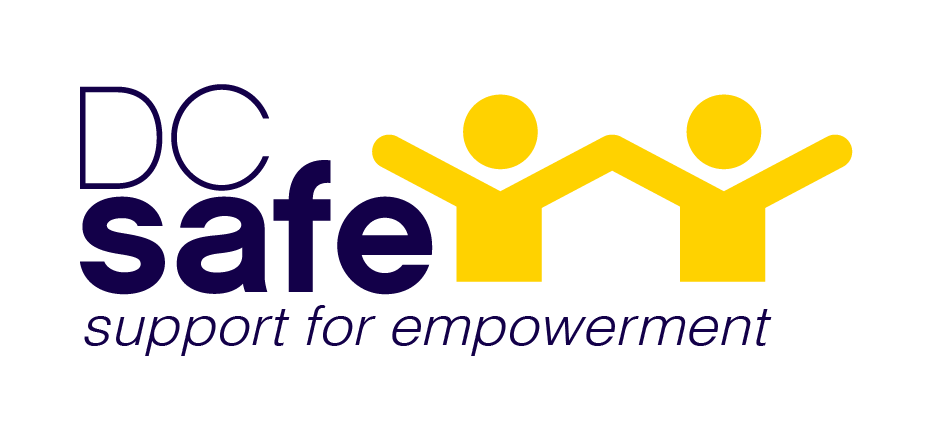Systems Advocacy
Systems advocacy is integral to DC SAFE’s mission. There are many ways to create systemic change, be it through legislation, litigation, direct action, or regulatory reform. But whatever the tactic, we strongly believe that the most effective change happens when we elevate the collective voices of the more than 8,000 clients we serve each year through partnerships with the government agencies and community-based organizations survivors rely on to achieve safety and stability.
Our Guiding principles
Systems advocacy is immediate and everyday work on the ground-level.
We strive to be an interrupter for survivors in the DC systems.
We continuously listen to the challenges that survivors face in seeking help, and then work with our community partners to find timely solutions.
We advocate for survivor-centered, low-barrier services that equally distribute care regardless of survivors’ participation with the criminal justice system.
It is our responsibility to be accountable, to hold systems accountable, and to continuously improve our collective response to domestic violence and enhance community safety.
partnerships & Initiatives: Improving community safety
Below are some of the primary partnerships that we have within various DC systems. Some partnerships may seem counterintuitive or even oppositional to our mission, but the act of partnering provides a forum for dispute resolution and education about survivors’ perspectives, needs and experiences.
Metropolitan Police Department
MPD receives around 35,000 911 calls for domestic violence each year. In 2020, we received over 20,000 calls on our Response Line, over 60% of which started with a referral from MPD.
Crime Victims compensation program
We help survivors access the Crime Victims Compensation Program, which provides financial assistance and reimbursement to victims of violent crime and their families with crime-related expenses.
high risk domestic violence initiatve
The HRDVI is a coordinated multidisciplinary approach with 17 District and federal government agencies and nonprofit organizations partnering daily to address domestic violence cases at high risk for serious reassault or homicide.
the DC Housing
continuum
Initiated by the DC Coalition Against Domestic Violence in 2016, this interagency partnership with DV housing providers was convened to develop and cultivate the use of a centralized and coordinated assessment system.
the council of the district of columbia
We work with the Council to advocate for survivor-centered legislation and effective policy implementation.
the fatality review board
The Board works to prevent domestic violence homicides by improving the response of individuals, the community, and government agencies to domestic violence.
get involved
receive our Quarterly systems advocacy Newsletter
Sign up here to receive quarterly updates and action alerts pertaining to domestic violence systems advocacy in DC.
Current Issues and Actions
Formal Recommendations to Strengthen the High Risk Domestic Violence Initiative (HRDVI)








